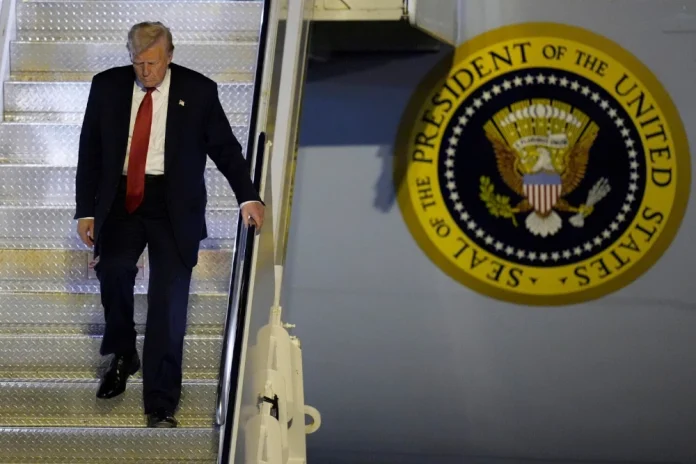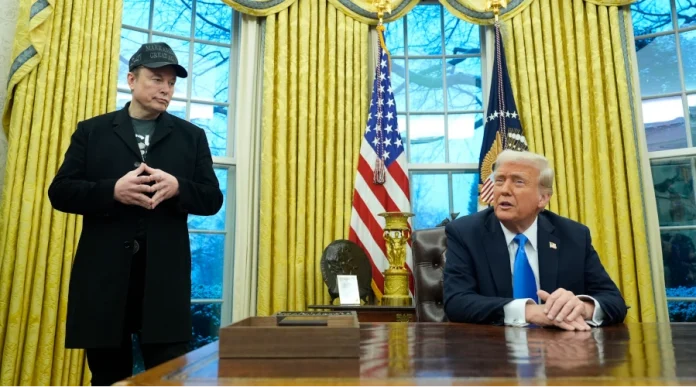As former President Donald Trump gears up for a potential return to the White House, his recent performance in a high-profile political debate has left many questioning his ability to maintain the dominance that characterized his earlier years in politics. After a series of strong debate performances in the 2020 election cycle, where his aggressive rhetoric and combative style played well with his base, Trump’s recent debate appearance was marked by a series of missteps and moments of vulnerability. This shift in his debate performance has raised concerns about his ability to hold onto his influence in the Republican Party, especially as he faces a more organized and vocal group of political rivals in the 2025 elections.
For Trump, debates have always been a crucial battleground. During the 2020 election cycle, he used his fiery and unapologetic style to dominate the stage, often interrupting and overpowering his opponent, Joe Biden. Despite alienating some moderate voters with his confrontational tactics, Trump’s combative approach resonated with his core supporters, reinforcing his image as a fighter who would not back down. His ability to command attention and make bold statements made him a formidable presence in the political landscape. But his recent performance suggests that the Trump who once captivated audiences with his sharp, decisive rhetoric may no longer be as invincible as he once seemed.
In the most recent debate, Trump appeared less confident and more defensive, a stark contrast to his previous performances. His usual assertiveness seemed muted, and he struggled to engage effectively with both his political rivals and the moderators. There were moments when he appeared flustered, unable to quickly regain control of the narrative as he had done in past debates. This lack of dominance was noticeable to both his supporters and detractors alike, leading some to wonder if his political power was beginning to wane.
This debate fallout is particularly significant given that Trump has long relied on his larger-than-life persona to maintain his hold over the Republican Party and the broader political stage. His debates with Joe Biden in 2020, for instance, were seen by many as key moments that showcased his ability to dominate the conversation, even if it often came at the cost of civility or decorum. Trump’s aggressive style was seen by many of his supporters as a strength, as it positioned him as a leader willing to challenge the establishment and disrupt the political status quo. In contrast, his more subdued performance in the most recent debate raises questions about his ability to maintain that same level of control and confidence moving forward.
One of the key aspects of Trump’s appeal has been his ability to connect with voters who feel alienated by the political establishment. His fiery rhetoric and willingness to confront political opponents head-on have made him a hero to many who feel that their concerns are ignored by Washington elites. However, his recent debate performance suggests that this image may be starting to fade. His rivals, including those within the Republican Party, are becoming more vocal and organized, challenging Trump’s dominance and signaling that they may not be as easily pushed aside as they were in previous election cycles.
This new level of competition within the Republican field could complicate Trump’s path to the nomination in 2025. His once-unassailable lead within the party is now being contested by a growing list of challengers who are positioning themselves as viable alternatives. For the first time since his political rise, Trump is being forced to confront the possibility that his brand of politics may not be as universally appealing as it once was. The fallout from his recent debate performance has given rise to increased speculation about whether Trump can continue to rely on his past successes or if he needs to recalibrate his approach to stay relevant in the changing political landscape.
The debate fallout also highlights a broader issue facing Trump’s campaign: his ability to appeal to a wide range of voters. While his base remains loyal, there are signs that Trump is losing some of his earlier appeal to moderates and independents, who may be turned off by his combative debate style and his recent struggles in articulating clear policy positions. With a crowded field of Republican contenders and the specter of a general election rematch with Joe Biden or another Democratic candidate, Trump’s campaign will need to find ways to reconnect with voters who are on the fence about his leadership.
Looking ahead, Trump’s campaign will likely need to adapt to the changing political dynamics in order to maintain its relevance. Whether through more polished debate performances, a clearer policy agenda, or a shift in tone, Trump must find ways to regain the momentum that made him a political powerhouse in the first place. The fallout from his recent debate performance may be a wake-up call for his campaign, signaling that the road to the 2025 election will not be as easy or as straightforward as he may have hoped.
As the race for the Republican nomination heats up, Trump’s ability to overcome these challenges will be a key factor in determining whether he can secure the support he needs to run for president once again. The debate fallout is just the latest chapter in a long political saga, but it serves as a reminder that in the ever-shifting world of American politics, no candidate—no matter how powerful—can afford to rest on their laurels. The 2025 election cycle is shaping up to be one of the most contentious and unpredictable in recent memory, and Trump’s ability to adapt to the changing political tides will be critical to his future success.




